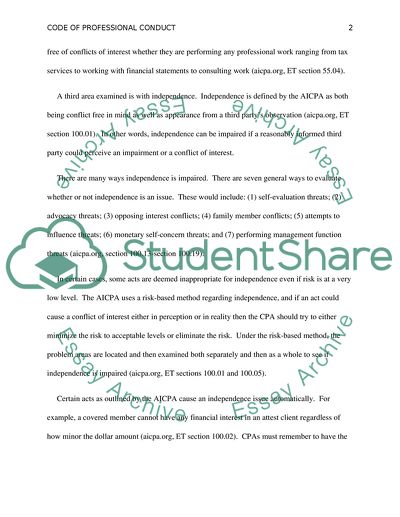Not Found (#404) - StudentShare. Retrieved from https://studentshare.org/finance-accounting/1744880-aicpa-code-of-conduct-and-professional-ethics-paper
Not Found (#404) - StudentShare. https://studentshare.org/finance-accounting/1744880-aicpa-code-of-conduct-and-professional-ethics-paper.


